Uncategorized
-
 Genetics
GeneticsWhat was Rosalind Franklin’s true role in the discovery of DNA’s double helix?
Two researchers say that Rosalind Franklin knowingly collaborated with James Watson and Francis Crick to discover the molecular structure of DNA.
-
 Psychology
PsychologyNative language might shape musical ability
People who speak tonal languages, where pitch alters meaning, are better at perceiving melody but worse at rhythm than speakers of nontonal languages.
-
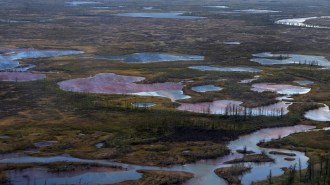 Climate
ClimateThawing permafrost may unleash industrial pollution across the Arctic
As the frozen ground warms due to climate change, industrial pollutants could flow free from thousands of sites across the Arctic.
By Nikk Ogasa -
 Quantum Physics
Quantum PhysicsA sapphire Schrödinger’s cat shows that quantum effects can scale up
The atoms in a piece of sapphire oscillate in two directions at once, a mimic of the hypothetically dead-and-alive feline.
-
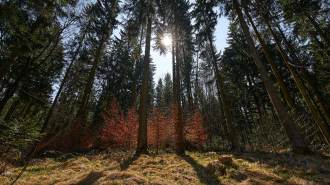 Plants
PlantsUltrasound reveals trees’ drought-survival secrets
Scientists used ultrasound sensors and electrical probes to reveal how drought affects the tissues of living trees.
-
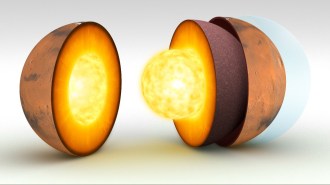 Planetary Science
Planetary ScienceSeismic waves crossing Mars’ core reveal details of the Red Planet’s heart
NASA’s InSight lander observed a quake and an impact on the farside of Mars, allowing researchers to measure physical properties of the planet’s core.
By Nikk Ogasa -
 Space
SpaceRocky planets might have been able to form in the early universe
The James Webb telescope spied planet-building material around young stars in a nearby galaxy whose chemical makeup matches that of the early cosmos.
-
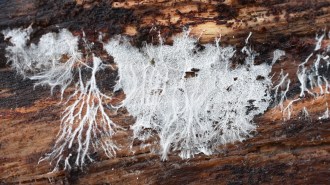 Materials Science
Materials ScienceA vegan leather made of dormant fungi can repair itself
Researchers developed a leather alternative made from dormant fungus that can be reanimated and then regrow when damaged.
By Jude Coleman -
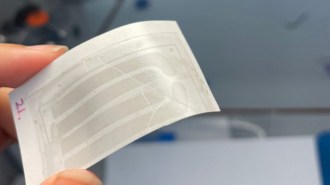 Health & Medicine
Health & MedicineA graphene “tattoo” could help hearts keep their beat
A proof-of-concept electronic heart tattoo relies on graphene to act as an ultrathin, flexible pacemaker. In rats, it treated an irregular heartbeat.
By Meghan Rosen -
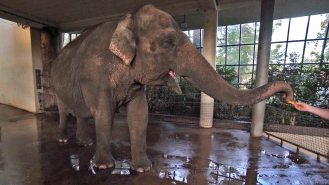 Animals
AnimalsThis elephant peels bananas, but only slightly ripe ones
Pang Pha, an Asian elephant at Zoo Berlin, probably picked up the skill by observing her zookeeper.
-
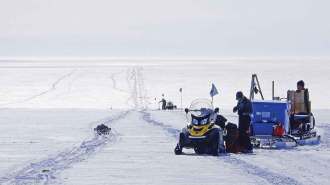 Earth
EarthA massive cavern beneath a West Antarctic glacier is teeming with life
A subglacial river has carved out the cavern beneath the Kamb Ice Stream, a West Antarctic glacier, and may be supplying nutrients necessary for life.
By Douglas Fox -
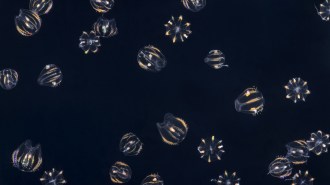 Life
LifeComb jellies have a bizarre nervous system unlike any other animal
A 3-D map of the comb jelly “nerve net” reveals fused neurons that lack the space, or synapses, most neurons use to communicate. Did it evolve independently?
By Jake Buehler